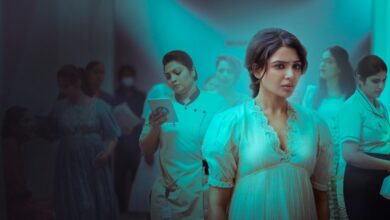Poor Things Review: A Grotesque Comedy In Which To Get Lost And Find Yourself
Cast: Emma Stone, Willem Dafoe, Mark Ruffalo, Ramy Youssef
Director: Yorgos Lanthimos
Where We Watched: In Venice Film Festival 2023
Filmyhype.com Ratings: 4/5 (four stars)
Fresh from winning the Golden Lion at the Venice Film Festival, here is our review of Poor Things by Yorgos Lanthimos. According to the biblical story, a woman is a creature born from the body of a man. Adam’s rib is the final piece of a creative process that sees Eve directly connected to that of her male counterpart. A continuous dependence is reiterated over time and involved in a state of centuries-old submission. At first glance, Poor Things by Yorgos Lanthimos (taken from the novel of the same name by Alasdair Gray and winner of the Golden Lion Venice 2023) could appear as the last chapter of an infinite essay on the gaze of the man who does not limit himself to possessing the woman with the power of vision, but he makes her his, taking her away from the arms of death and restoring life to her.
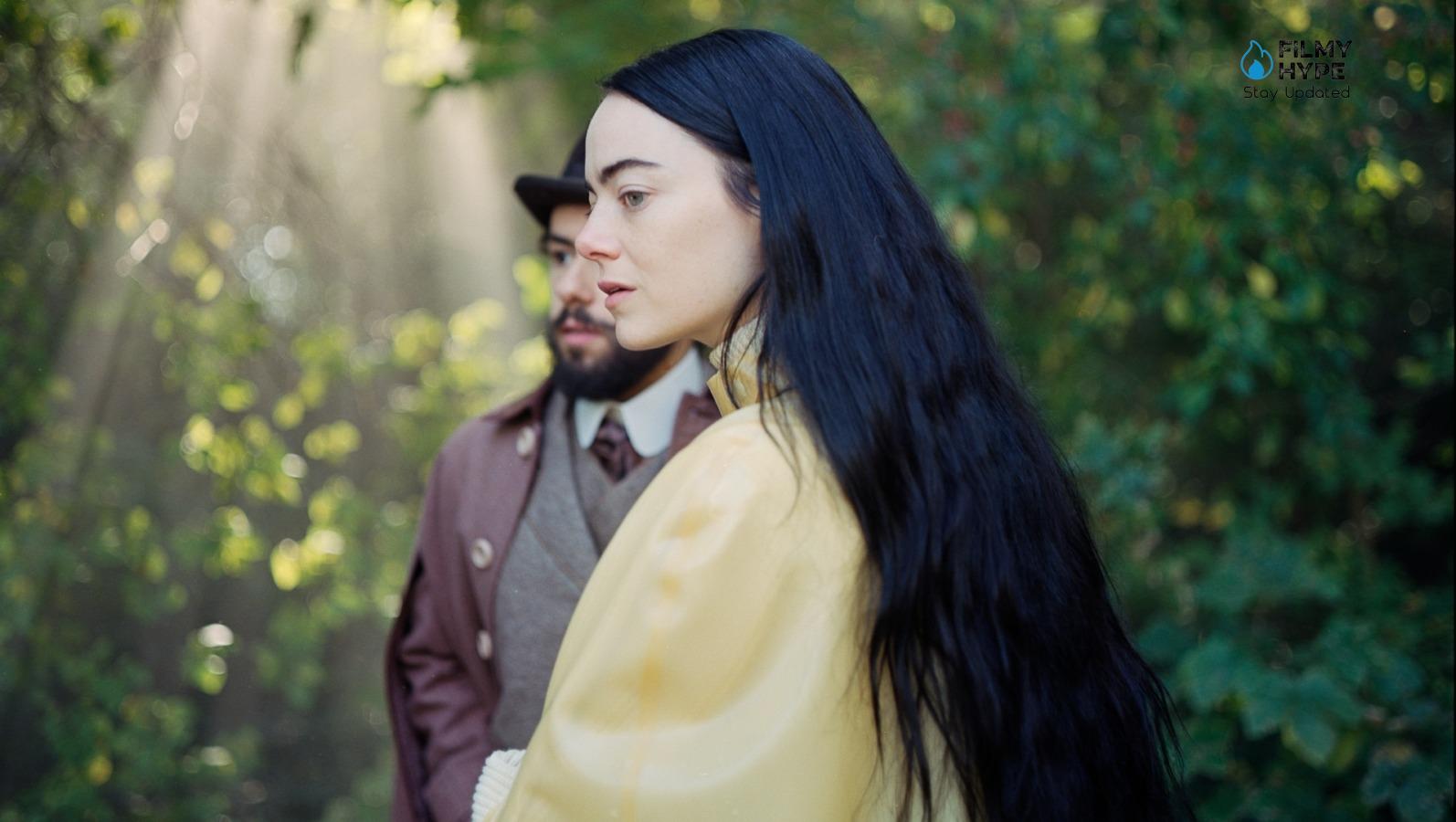
Close in intention to Mary Shelley’s Doctor Frankenstein, Willem Dafoe’s Godwin even betrays his nickname, “God”, to make Bella no longer a submissive creature, daughter of his narcissistic ambition as ruler of and over death, but an experiment born from a charitable nature. From the moment of her rebirth (accomplished through the transplant of the brain of the fetus that she carried in her womb after throwing herself from a bridge) Bella is first a child, then an adolescent, and an adult; an evolution carried out independently, of a self-contained knowledge of one’s personality, unprecedented, born from the underworld and returned in a dreamlike scenario in which everything is a wonder, fear, discovery.
Poor Things Review: The Story Plot
We are in London, in the midst of the Victorian era. The protagonist of the story is Bella (Emma Stone), a young woman who committed suicide but was promptly brought back to life by Godwin Baxter (Willem Dafoe), a “mad scientist” who transplanted her with a new brain. In her first weeks, therefore, Bella is a creature as beautiful and fascinating as she is awkward in her movements and childish in her behavior. All the men who have to deal with her, however, are soon won over by her: Godwin has an affectionate and paternal attitude towards her as well as a mere scientific interest, while another younger doctor, Max McCandles (Ramy Youssef), he falls in love with her, calling her a “splendid retard”. However, it will be an unscrupulous lawyer named Duncan Wedderburn (Mark Ruffalo) who will take her around Europe, introduce her to the pleasures of life (primarily sex), and thus start her on a path of growth that will end up surprising everyone.
Poor Things begin with death. With a woman who lets herself sink into the ocean. Then, however, there is her life, offered by an eccentric scientist named Godwin (Willem Dafoe), nicknamed God, who brings her back to life, connecting her adult body with the brain of an infant. And this is how Bella Baxter (Emma Stone) is born, an experiment created for the love of science, who over time learns all the basic actions of a human being, under the watchful attention of her creator. The first walks, the first dances, the first words: a life of firsts. But Bella’s curiosity is great, too much. She wants to leave home, she wants to discover the world, she wants to see what’s outside those walls that protect her. She wants to discover what free life is, without a father by her side.
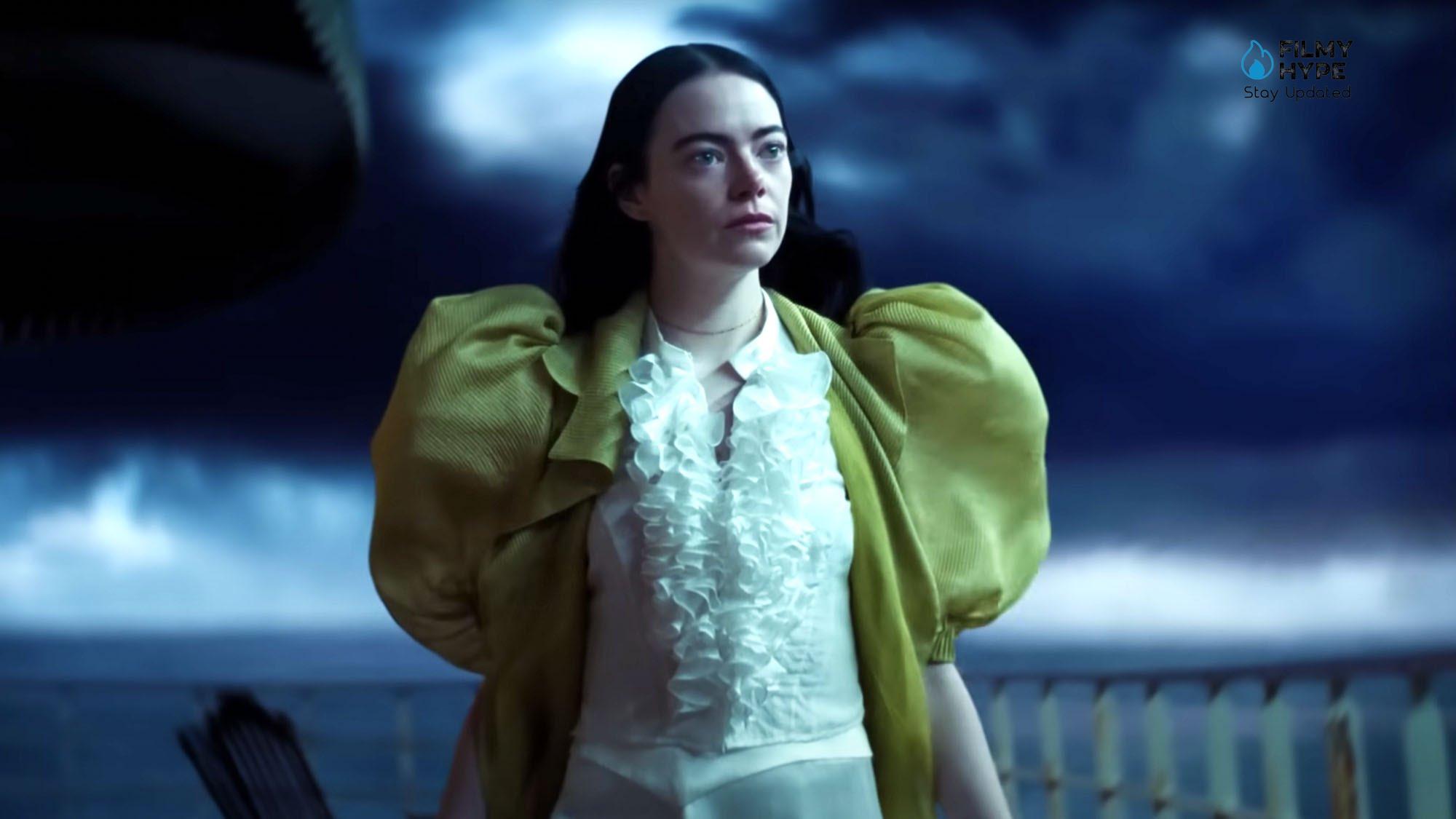
Bella wants to grow up. Or maybe she has to. And so, she gives in to the temptation to follow a crafty and petty lawyer named Duncan (Mark Ruffalo), who is in love with her, leaving her nest and starting to travel around different cities, discovering sex, champagne, sweets, and people. strangers who, like her, populate the world, each with their own story. And she became aware of her body, her freedom, her life. Poor Things is a story of emancipation and self-determination, of self-discovery of one’s identity. A journey that translates the meaning of a creature, from a created thing to a living being, from someone’s product to the result of our experiments. A fairy tale, between Frankenstein and Pinocchio, is timeless and, in the same way, contemporary.
Poor Things Review and Analysis
Bella’s thoughts, emotions, and movements are therefore relegated to an infantile stage which not only allows the girl to color her world with discoveries, abandoning the elementary nature of black and white for bright, iridescent, and luminous shades but also fueling irony, paradoxes, a narrative structure capable of making people laugh, attacking its audience head-on. Yes, because behind that language without censorial filters, and those instinctive actions generated by an infantile stage destined to open up to an acute and intelligent rationality, Lanthimos manages to attack with subtle cynicism the world of toxic masculinity, and of those emotional dependencies that lead to obsessions. Thanks to a camouflaged and multifaceted Emma Stone, Lanthimos finds the fuse with which to set fire to his weapon, hitting his target squarely. No longer a perfect idea that becomes reality as in Barbie (we refer you to our review of Barbie), in Poor Things
The discovery of oneself, one’s limits, and one’s virtues is a journey in stages where every personal acquisition of fragments of self-determination corresponds proportionally to the fragmentation of that seemingly impregnable outpost of toxic patriarchy. Stripped of bourgeois hypocrisy, Bella’s travels are parts of a grand cognitive tour of mental and physical openness. Women’s sexual appetites are bridges to a world to be savored, made one’s own, and dominated in the same way Bella dominates the bodies of her lovers. An irresistible, intelligent speech, hidden under the elegant clothes of a dystopian universe, halfway between futurism and the Victorian era. An almost uchronic, steampunk nature, collected in visual paintings of majestic settings crossed by bodies incapable of stopping, because they desire to free themselves from their obsessions (Mark Ruffalo’s Duncan Wedderburn), or their instinctive flows and sexual impulses (Bella Baxter by Emma Stone).
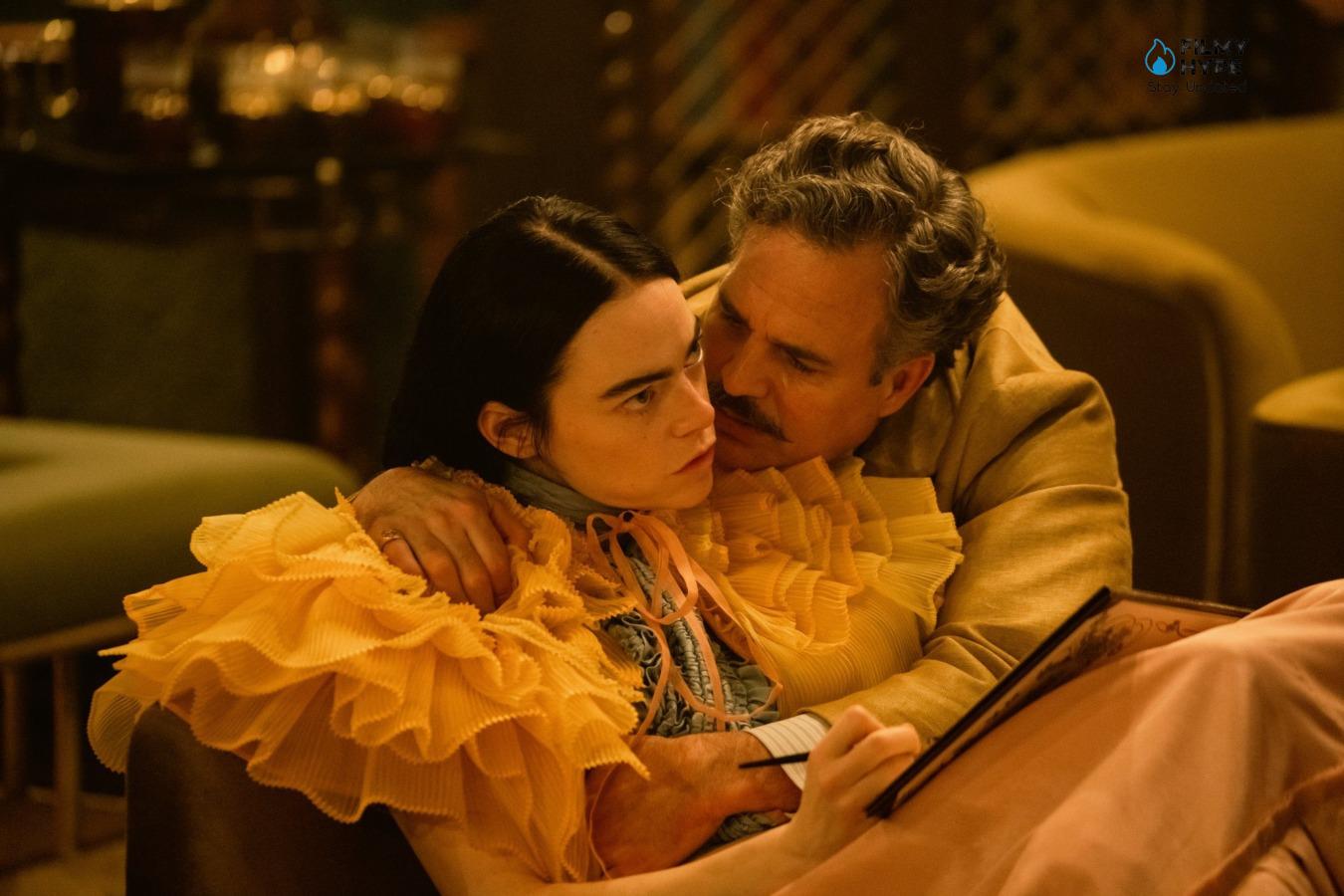
It is no coincidence that the centerpiece of the entire work is the scene of a dance in which Bella shows her imaginative side, out of the chorus; in a canonized world, subject to rules pre-set by the hypocrisy of a bourgeois society careful not to make mistakes and to carefully follow the steps marked by others, Bella is the revolution of this dance, a spark out of the chorus who terrifies the bigoted scheme of his society with the disarming force of his words and his unconscious humor. The result is a continuous reversal of expectations and responses, actions and behaviors; a reversal that leads to indicating the poor creatures of the title in the bodies of men imprisoned in their fragility and weaknesses and now made victims of a predatory woman and no longer prey, rather than in the experiments that came out of God’s laboratory.
It is a discovery of the world in stages, Poor Things A rollercoaster of libido and intelligence launched at full speed on a visually fairy-tale structure, and narratively as cynical as it is irresistible. Yet, like a car launched at full speed on the highway of dreamlike surrealism, Lanthimos has to brake that car suddenly, slowing down the journey, expanding the time: the sequence set in Paris is a slap in the face of yesterday’s bigotry, today and tomorrow, but the touch on the cheek lasts too long. Of course, thanks to it the spectator has time to catch his breath and stretch, but the continuous reiteration of the same action risks destroying everything previously built. Fortunately, it won’t be like this, and the journey will be resumed with open throttle, even faster, even more destabilizing, sharpened by a musical accompaniment of out-of-tune violins that underline the internal annoyance at alienating situations full of tension and fear.
It is a rebirth that gives strength to Bella’s character; from a victim and at the same time an accomplice to malice and violence, to a woman she becomes dependent, authoritative, and strong in herself; she is a woman who carries the weight of her destiny and her actions on her shoulders, as underlined by those large, exaggerated, voluminous shoulder pads that dress her dresses so from the Victorian era, and so contemporary. Lanthimos’s is not a Mary Shelley experiment. Although his name betrays divine ambitions, the God of Poor Things never dares to replace God. What man does on the screen – and through him Lanthimos himself – is to reclaim the female figure, making her one and three, daughter, mother, and woman. A feminist discourse in which man, the toxic and brutal one, gives up on vulgar rhetoric, throwing himself into the arms of the destabilizing, alienating truth, just as the backgrounds that cling to the characters are alienating and destabilizing, shaping them, endowing them with autonomy, independence, revenge, self-awareness. In short of life.
When we talk about a story out of time we are not only referring to the themes that the film addresses, capable of expertly linking grotesque comedy with social satire, consistently with the style of Yorgos Lanthimos, here capable of taking the lesson of the previous The Favorite and opening up even more so towards the public (and without distorting it: we perceive in every minute, and not just in the shooting style, that we are watching a film by the same author as The Lobster and Dogtooth). The world in which the film is set is a mixture of suggestions and imagery, a Frankenstein’s creature that combines the most classic of Victorian period dramas with steampunk suggestions. As viewers, we can’t help but marvel like Bella. At first, it is the interior of Godwin’s mansion, full of absurdity in being the product of a scientist who continually experiments, even with animals, that fascinates us.
Then, slowly, that domestic heart begins to feel tight, that black and white imagery becomes habitual, and that’s when we discover the colors of an open and unreal world, extraordinary in its composition without ever revealing itself to be fake or exaggerated. Here, Yorgos Lanthimos’ creation is truly a state-of-the-art creation, artificial yet credible, unexplored yet welcoming. A perfect world in which to follow the same path as Bella, finding we and finding ourselves again. Of course, the film’s cast is made up of several names who should need no introduction. Mark Ruffalo, who plays the lawyer, Duncan, is excellent at changing register, going from looking like a rich and handsome man to showing all his silly pretense (and even in the most agitated moments he never appears too loaded).
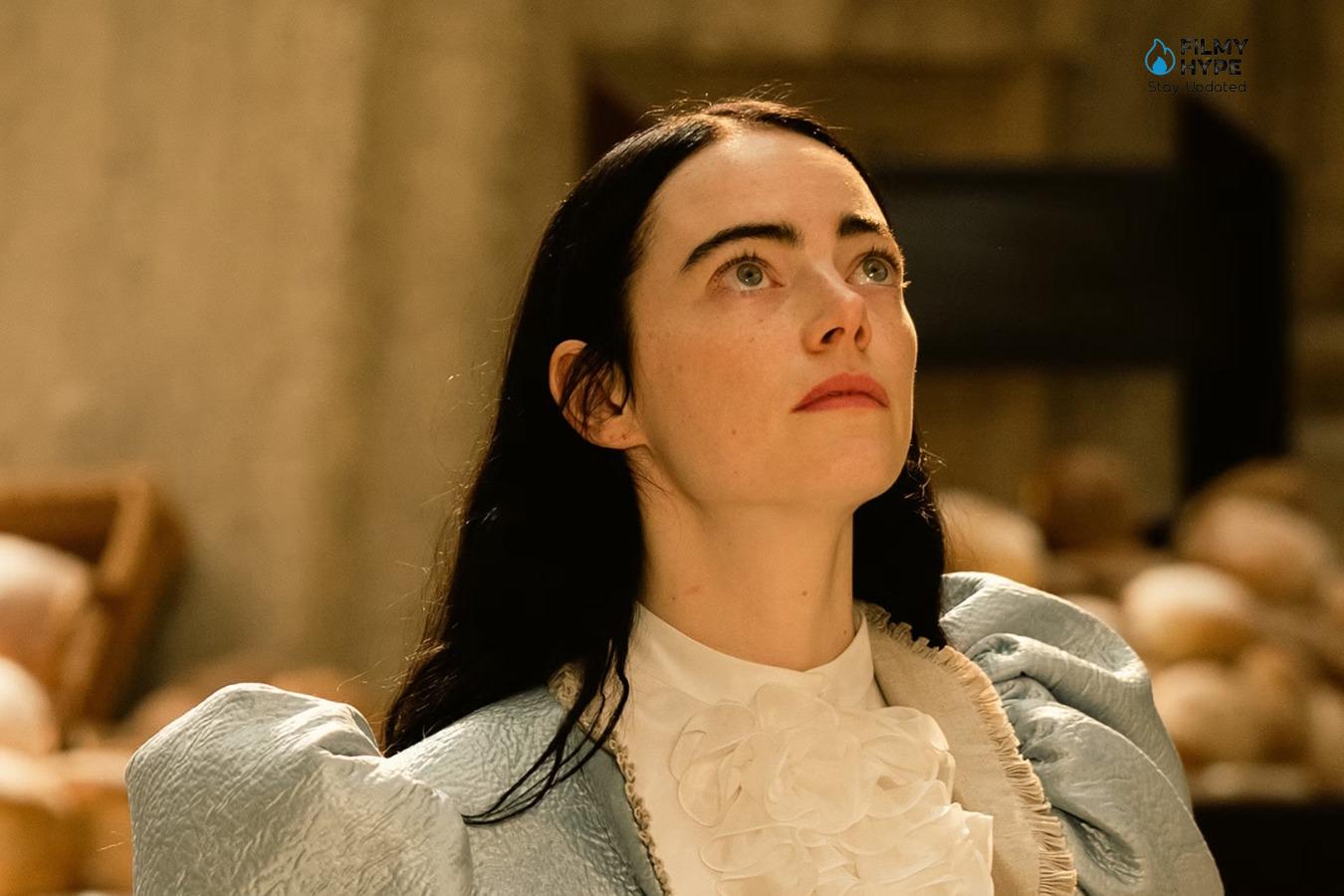
Willem Dafoe, with his scarred face, couldn’t be a better eccentric scientist and the young Ramy Youssef, in the role of a medical student who must study Bella’s behavior, has the perfect physique role. But, without beating around the bush too much, it is Emma Stone who stands out like never before. At first a pure childish soul, then more and more aware of her own identity and of her “growing up”, Stone gives one of her most complete interpretations of herself, making her body available above all as she has never done until now. Her nudity is never gratuitous, but always part of the engine of the story. Because growing up also means coming to terms with your flesh, without shame. Her Beauty is truly a creature of pure soul, alive, increasingly aware. She is a character capable of powerfully bonding with the viewer, who cannot help but feel the desire to discover life with the same eyes wide open, enormous, full of childish curiosity like those of Emma Stone.
Poor Things Review: The Last Words
Poor Things is one of the most beautiful films of the Venice 2023 competition. Consistent with the poetics of Yorgos Lanthimos, the story of emancipation and growth of the protagonist, played by a sublime Emma Stone, in an artificial but fascinating world is an exciting story about (re) discovery of life, a grotesque comedy in which to get lost and find yourself. Yorgos Lanthimos’ latest work manages to outline the signs of a perfect essay on female reclamation through the body of a woman who has escaped from death and her evolution, which will lead her from an infantile state to an absolute dominion of the surrounding world. Not just collections of notions to internalize, with Bella the most toxic patriarchy, made up of obsessed and emotionally dependent men, is also destroyed.





